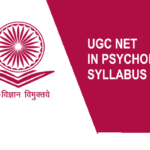Psychological testing plays a crucial role in understanding various aspects of an individual’s cognitive, emotional, and behavioural functioning. It encompasses a wide range of areas, each designed to assess specific dimensions of human psychology. In this blog, we will delve into different areas of psychological testing, exploring intelligence, creativity, neuropsychological tests, aptitude, personality assessment, and interest inventories.
- Intelligence Testing: Intelligence tests aim to measure a person’s cognitive abilities, problem-solving skills, and capacity to learn. One of the most well-known intelligence tests is the Intelligence Quotient (IQ) test. These tests typically evaluate verbal and non-verbal reasoning, memory, and processing speed. Intelligence testing helps in understanding an individual’s intellectual strengths and weaknesses, aiding in educational and vocational planning.
- Creativity Assessment: Creativity tests focus on evaluating an individual’s ability to think outside the box, generate innovative ideas, and solve problems in novel ways. These assessments may involve tasks such as completing incomplete drawings, solving puzzles, or generating unique responses to open-ended questions. Creativity testing is particularly valuable in fields that require innovative thinking, such as the arts, design, and research and development.
- Neuropsychological Tests: Neuropsychological tests are designed to assess cognitive functions and identify any potential neurological deficits. These tests are often used in clinical settings to evaluate memory, attention, language, and executive functions. They are crucial for diagnosing and monitoring conditions such as traumatic brain injuries, dementia, and other neurological disorders.
- Aptitude Testing: Aptitude tests measure an individual’s innate ability to acquire specific skills or perform certain tasks. Unlike intelligence tests, which assess general cognitive abilities, aptitude tests focus on evaluating skills related to a particular domain or profession. Examples include verbal aptitude tests for writers and editors or numerical aptitude tests for individuals in finance or engineering.
- Personality Assessment: Personality tests aim to uncover an individual’s traits, behaviours, and tendencies. The most widely used personality assessment tool is the Myers-Briggs Type Indicator (MBTI), which categorizes individuals into 16 personality types based on preferences for four dichotomies. Other personality tests, such as the Big Five Personality Traits, delve into dimensions like openness, conscientiousness, extraversion, agreeableness, and neuroticism. These assessments provide valuable insights into interpersonal dynamics, career preferences, and personal development.
- Interest Inventories: Interest inventories help individuals identify their preferences and inclinations in various domains, guiding career choices and personal development. These tests typically present a range of activities, and individuals rate their interest or enjoyment in each. The Strong Interest Inventory is a popular example, assessing interests in specific occupational fields, and offering insights into potential career paths.
Conclusion:
In conclusion, psychological testing is a multifaceted field that encompasses diverse areas catering to the intricate nature of human psychology. Whether assessing intelligence, creativity, neuropsychological functions, aptitude, personality, or interests, these tests provide valuable information for educational, clinical, and vocational purposes. Understanding the nuances of each area aids psychologists, educators, and individuals in making informed decisions about education, career paths, and personal development.








